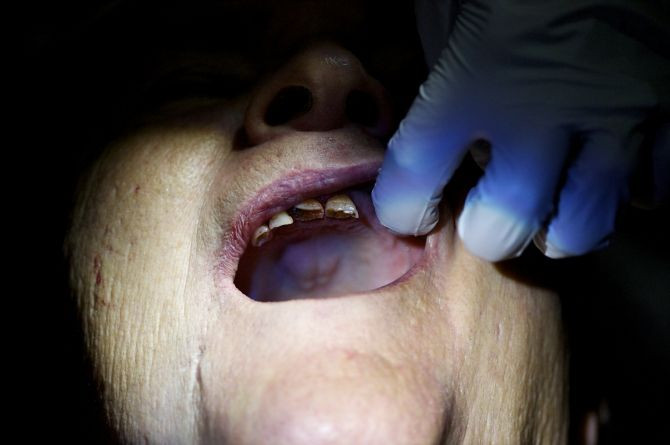Rheumatoid Arthritis Patients at Risk for Severe Gum Disease

A new study has found that people suffering from rheumatoid arthritis have an increased risk for severe gum disease compared to other individuals.
The study was based on a small group of participants that included approximately 90 patients diagnosed with arthritis and 90 healthy people. All participants were non-smokers and none of the study participants were on any arthritis drugs.
Researchers found that two-thirds, around 65 percent, of arthritis patients had severe gum disease compared to about 28 percent of healthy control population. Arthritis patients were four times as likely to develop severe gum disease as healthy people.
According to PubMed Health, in rheumatoid arthritis, the body's immune system starts attacking body's tissue. What causes this disease is unknown. Genes, infection and hormones might lead to the disease.
Smoking is a known risk factor for rheumatoid arthritis and is associated with the production of antibodies, anti-citrullinated peptide antibodies (ACPA) that target body's own proteins. These antibodies are biomarkers for rheumatoid arthritis and are often present in the blood of patients with the disease.
In the present study, the extent of gum disease was measured by a probe to check how far the gum had receded from the teeth (pocketing). Patients were also quizzed about teeth-loss, bleeding gums and sensitive teeth.
The extent of gum recession or pocketing was most severe in arthritis patients who had high levels of ACPA in their blood. These participants also had the most severe form of the gum disease and had arthritis longer time than other participants.
"[Gum disease] is more common and severe in rheumatoid arthritis patients than in healthy controls...and could be a potential environmental trigger in the [development] and also in the maintenance of systemic inflammation in [the disease]," they conclude.
The study was published in the journal Annals of Rheumatic Diseases.
Published by Medicaldaily.com



























